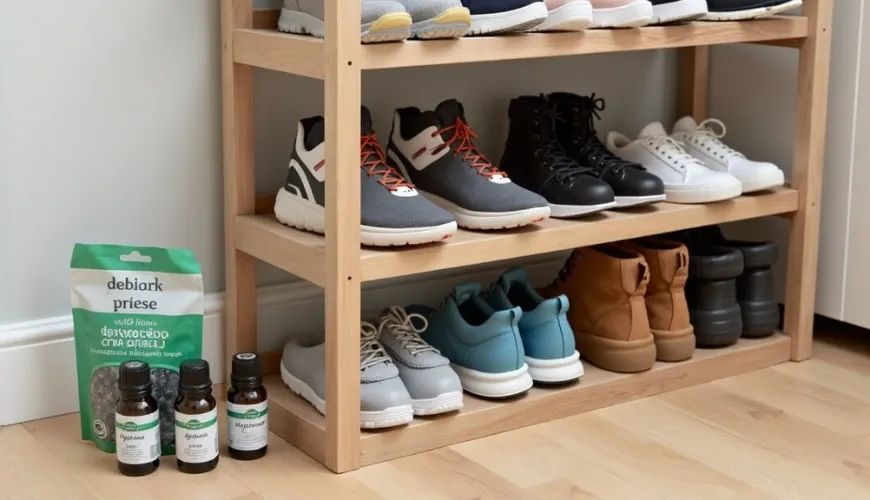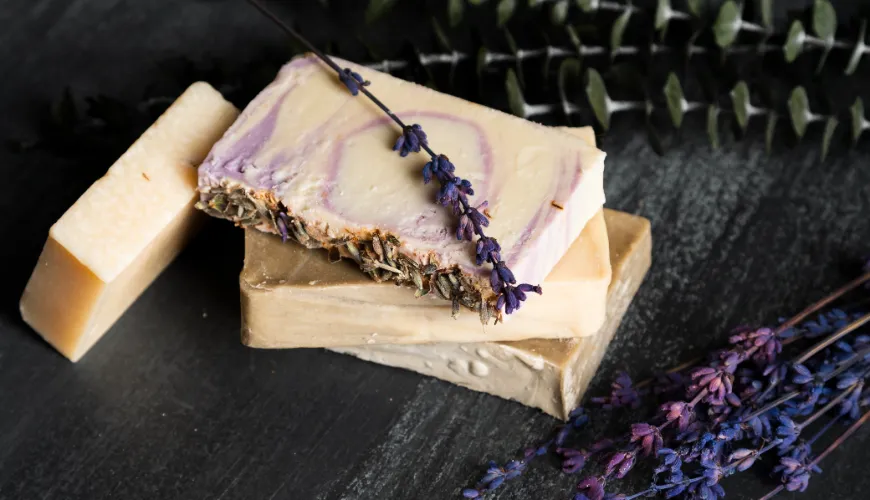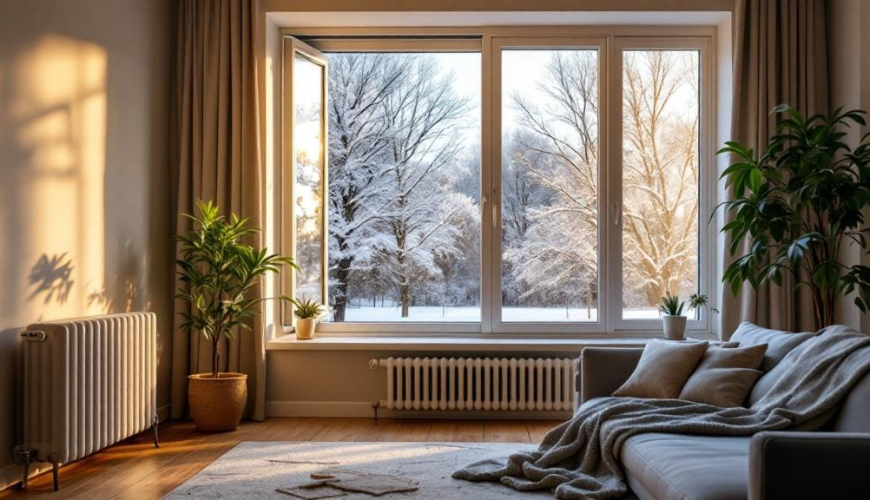
How to Get Rid of Shoe Odor Quickly and Effectively Without Chemicals

When Shoes Smell - What Helps and How to Get Rid of Odor for Good?
Everyone knows it. A favorite pair of shoes, in which you've either hiked mountains or just gone through a workweek, suddenly starts to smell unpleasant. In the worst case, it’s an odor reminiscent of mustiness, sweat, or even cat urine, and you might think the only solution is to throw them away. Good news: the scent of newness, sweat, or a domestic accident with the cat doesn't have to be the final stop. There are several ways to get rid of shoe odor quickly, gently, and without harmful chemicals.
Odor in shoes is not just a matter of aesthetics or social embarrassment. It's a matter of hygiene, health, and, in some cases, the environment. Especially if we throw away shoes because of odor and buy new ones. Many people are unaware that the solution is often simpler than it seems – and above all, sustainable.
Why Shoes Smell (and What to Do About It)
The most common culprits are bacteria and fungi, which thrive extraordinarily well in the warm, moist environment of shoes. Leather shoes, sports sneakers, and even house slippers absorb sweat, dirt, and dust, creating an ideal environment for microorganisms. These then produce an unpleasant odor. If we wear shoes without socks, dry them insufficiently, or store them for long periods without ventilation, the problem only worsens.
Imagine an athlete who puts their running shoes in a bag after training and leaves them there for several hours until they get home. Without drying, without cleaning. After a few such cycles, the shoes become the epicenter of odor. The same can happen with new shoes – just for a completely different reason.
How to Get Rid of Odor from New Shoes
It may be surprising, but even new shoes can smell – even if no one has worn them yet. This is usually due to a combination of synthetic materials, adhesives, and chemicals used during manufacturing and packaging. A new pair, pulled straight from the box, can smell strongly of plastic or chemicals that linger for weeks.
Before you decide to return the shoes or simply endure them, try airing them out in a well-ventilated area – ideally on a balcony or near an open window. Give them space and time to "breathe out" the volatile substances from manufacturing. Sometimes sprinkling baking soda inside the shoes can help. It absorbs odors, and you can shake it out after a few hours.
Another option is to place sachets with activated charcoal or natural odor absorbers inside the shoes – for example, bags with lavender, dried mint, or coffee grounds wrapped in cloth. They work not only for new shoes but also for those that have been around for a few seasons.
Cat Urine Odor? Don't Give Up
Few things smell as intensely and unpleasantly as cat urine. When a pet decides to mark a pair of your shoes, it often seems that the only solution is to throw them away. But even here, there are effective ways to get rid of the odor – although it will require a bit of patience.
The key is to react as quickly as possible. First, dry the shoes with a paper towel to remove as much urine as possible, then rinse them with cold water (hot water sets the urine). Next, use a solution of vinegar and water in a 1:1 ratio – vinegar neutralizes the ammonia smell of urine. Let it work, then rinse.
If the odor persists, use enzymatic cleaners, which break down organic substances at the molecular level. These can be found in eco-friendly versions that are gentle not only on the environment but also on your shoes. And they mainly don't contain harmful fragrances that only mask the odor.
An example is the natural brand Tierra Verde, which produces eco-friendly cleaners based precisely on enzymes and plant-based surfactants – an ideal choice for households with pets.
Leather Shoes and Odor - How to Handle Them Without Damage
Leather shoes are beautiful, elegant, and often very expensive. But when they start to smell of moisture, mold, or old leather, most people hesitate on how to deal with them. Leather is a sensitive material that doesn't tolerate rough handling, excessive moisture, or aggressive cleaning agents.
In this case, a careful combination of drying and odor absorption helps. Start by lining the shoes with newspaper, which absorbs moisture and odors. Then insert baking soda – either loose or in a fabric bag – and let it work overnight. Another option is to use a mixture of baking soda and cornstarch, which is even gentler on delicate leather.
If the odor persists, try gently wiping the inside of the shoes with water and a little vinegar or lemon juice. But always ensure thorough drying afterward – ideally using cedar shoe trees, which maintain shape and also absorb odors.
How to Quickly Get Rid of Shoe Odor When There's No Time
Sometimes there’s simply no time for drying, airing, vinegar baths, or natural cleaners. Shoes smell in the morning, and you need to wear them to work or an important meeting. What then?
The quickest solution? Insoles with activated charcoal or natural oils, which neutralize odors in a flash. Another option is to sprinkle baking soda inside the shoes and shake it out after five minutes. Refreshing with essential oils – such as tea tree or eucalyptus oil – also works, but be careful, just one drop is enough, otherwise, there's a risk of skin irritation.
A quick trick from practice: put the shoes in the freezer. Yes, it sounds strange, but the cold kills the bacteria and fungi that cause the odor. Just overnight, in a plastic bag, so your freezer doesn't smell.
Sustainable Prevention - Clean Shoes, Fresh Household
The most effective way to get rid of shoe odor is to prevent it from occurring. Regular airing, alternating footwear, using socks made from natural materials, and drying after each wear works wonders. If you want to avoid synthetic fresheners, natural sprays containing alcohol and herbal extracts – such as sage, lavender, or thyme – can also help.
A simple list of what works as prevention:
- Inserting moisture absorbers for shoes (e.g., bamboo charcoal or natural silica gel)
- Alternating footwear (not wearing the same pair multiple days in a row)
- Regular washing of insoles and changing socks
- Storing shoes in a dry, ventilated place
As the saying goes: "Cleanliness is half health." And in the case of shoes, this is doubly true – not only for your feet but also for home comfort, ecology, and a healthy lifestyle. Because shoes that smell fresh are just as important as freshly laundered clothes or a tidy home. And there's no need to run to the store for a chemical spray because of them.
From new shoes to leather oxfords, from sneakers to house slippers – every pair deserves a second chance. And if we give it intelligently, sustainably, and without unnecessary waste, it will delight not only our feet but also the planet.

